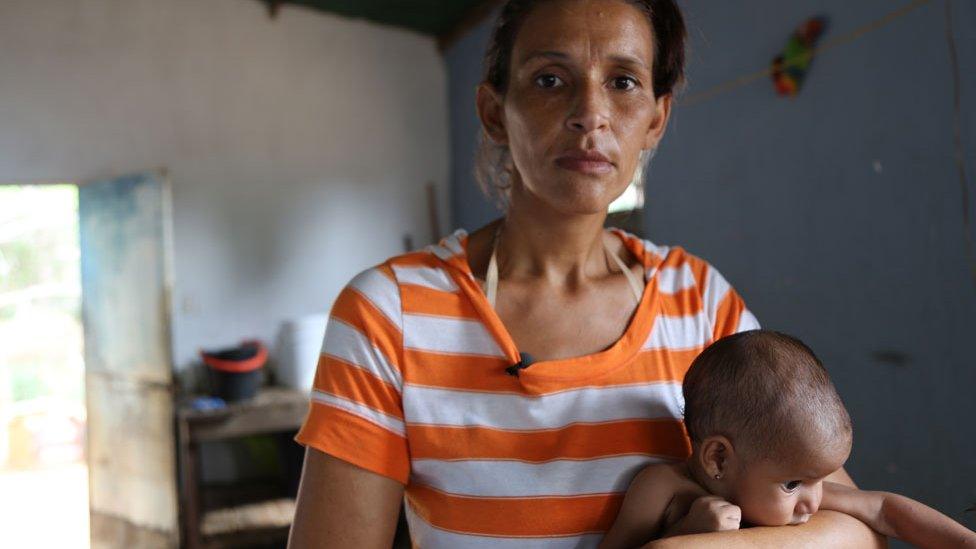Venezuela elections neither 'free nor fair', says US
- Published
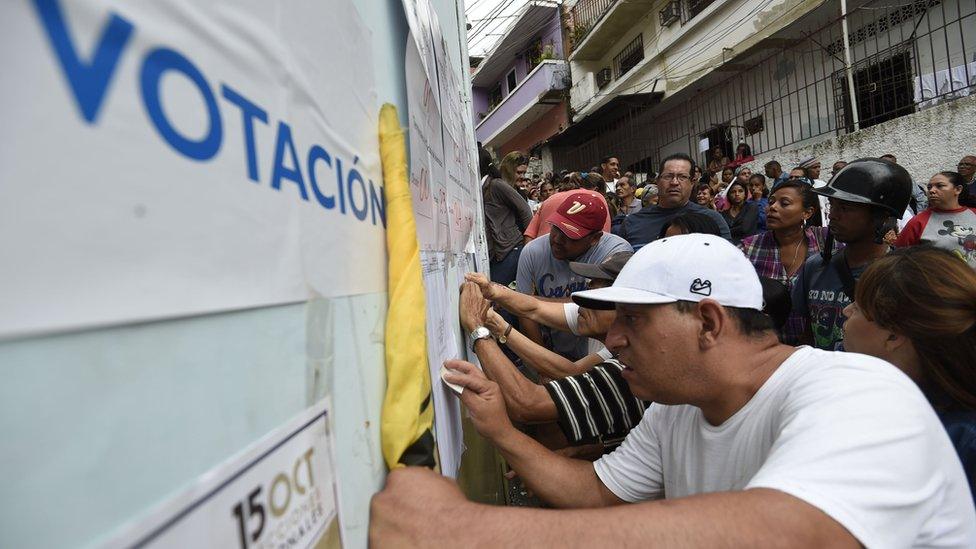
Voters check the electoral roll during the elections for state governors in Venezuela
The United States has condemned Sunday's elections for state governors in Venezuela, branding them neither "free nor fair".
The State Department said ballot papers had been manipulated and polling stations moved "without public notice".
President Nicolás Maduro's supporters won 17 of 23 state governorships but opposition leaders have alleged fraud.
The opposition Democratic Union Roundtable coalition has refused to recognise the result.
Venezuela socialists win governor seats amid fraud claims
"We condemn the lack of free and fair elections yesterday in Venezuela. The voice of the Venezuelan people was not heard," State Department spokeswoman Heather Nauert said.
She alleged there had been "last-minute changes to polling station locations without public notice; manipulation of ballot layouts; and limited availability of voting machines in opposition neighbourhoods".
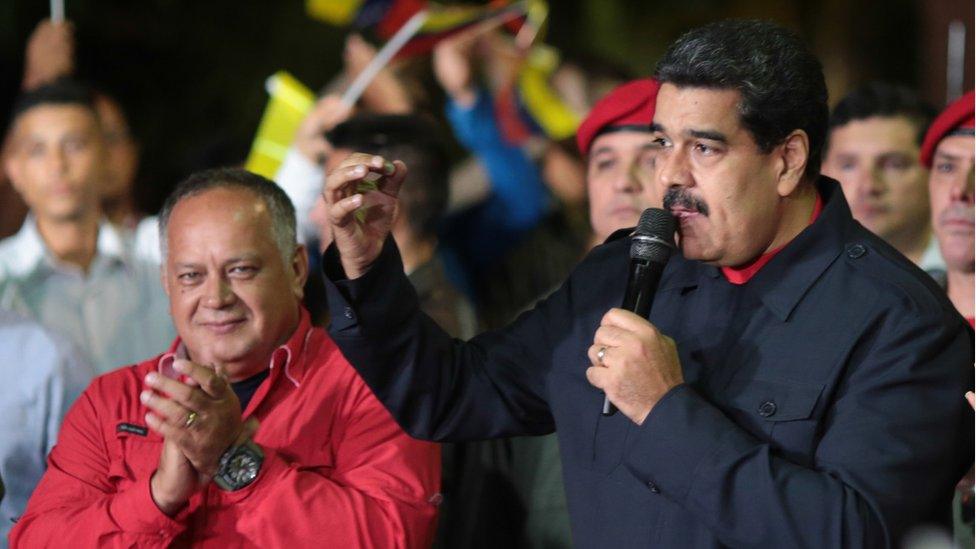
President Nicolás Maduro said Venezuela has "the best electoral system in the world"
The statement also criticised a "lack of independent, credible international observers" and demanded a "technical audit for the National Electoral Council's tabulation".
The National Electoral Council announced the election results and has been accused of pro-government bias by the opposition.
President Maduro hailed the landslide as a victory for Chavismo, his party's brand of socialism named after former President Hugo Chávez.
He said it was proof that Venezuela has "the best electoral system in the world".

Conflict with Washington
Will Grant, BBC News, Caracas
The opposition in Venezuela was never likely to recognise an election that handed President Maduro such a wide margin of victory. Now their concerns have been echoed by the Trump Administration.
The US has already imposed sanctions on the Venezuelan government and further action may now follow.
None of this will come as a surprise to President Maduro. He generally thrives off the conflict with Washington and the EU. In the short term, he's simply pleased to have announced to the nation a significant victory at the polls, whether people believe the result or not.
His government will now press ahead with the process of having the new governors swear in before the controversial new legislative body, the constituent assembly.

The State Department described Mr Maduro's government as an "authoritarian dictatorship" and pledged "the full weight of American economic and diplomatic power" to "the Venezuelan people as they seek to restore their democracy".
The US ambassador to the United Nations, Nikki Haley, called for an audit of the electoral process. "An election is only legitimate if it is free and fair, and from the start, this was neither," she said.
A poll conducted by private firm Datanalisis before the election suggested 45% of voters intended to vote for opposition candidates and 21% for the governing socialist party candidates.
However, another poll by the same firm had also suggested that President Maduro's popularity rose by six percentage points after the US imposed sanctions on him.
- Published13 October 2017

- Published26 July 2017
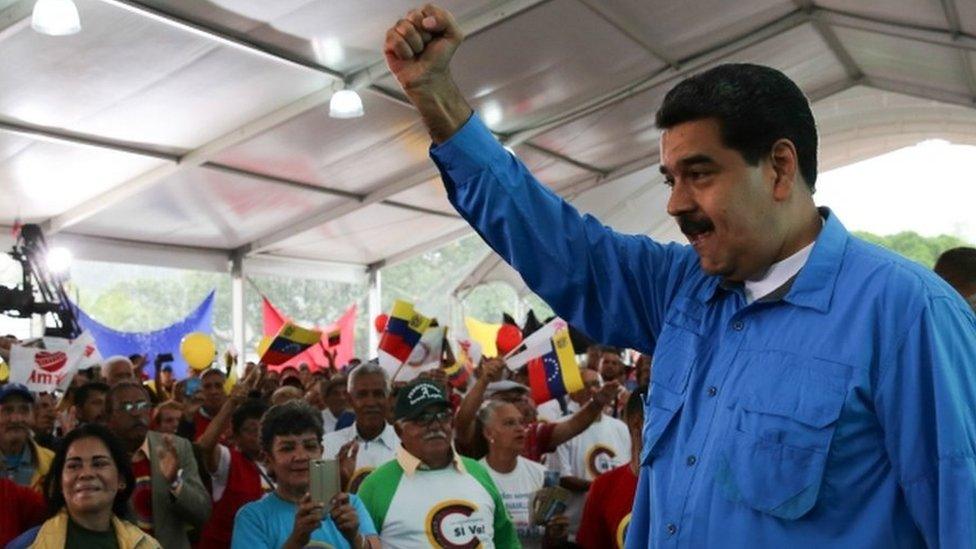
- Published19 July 2017
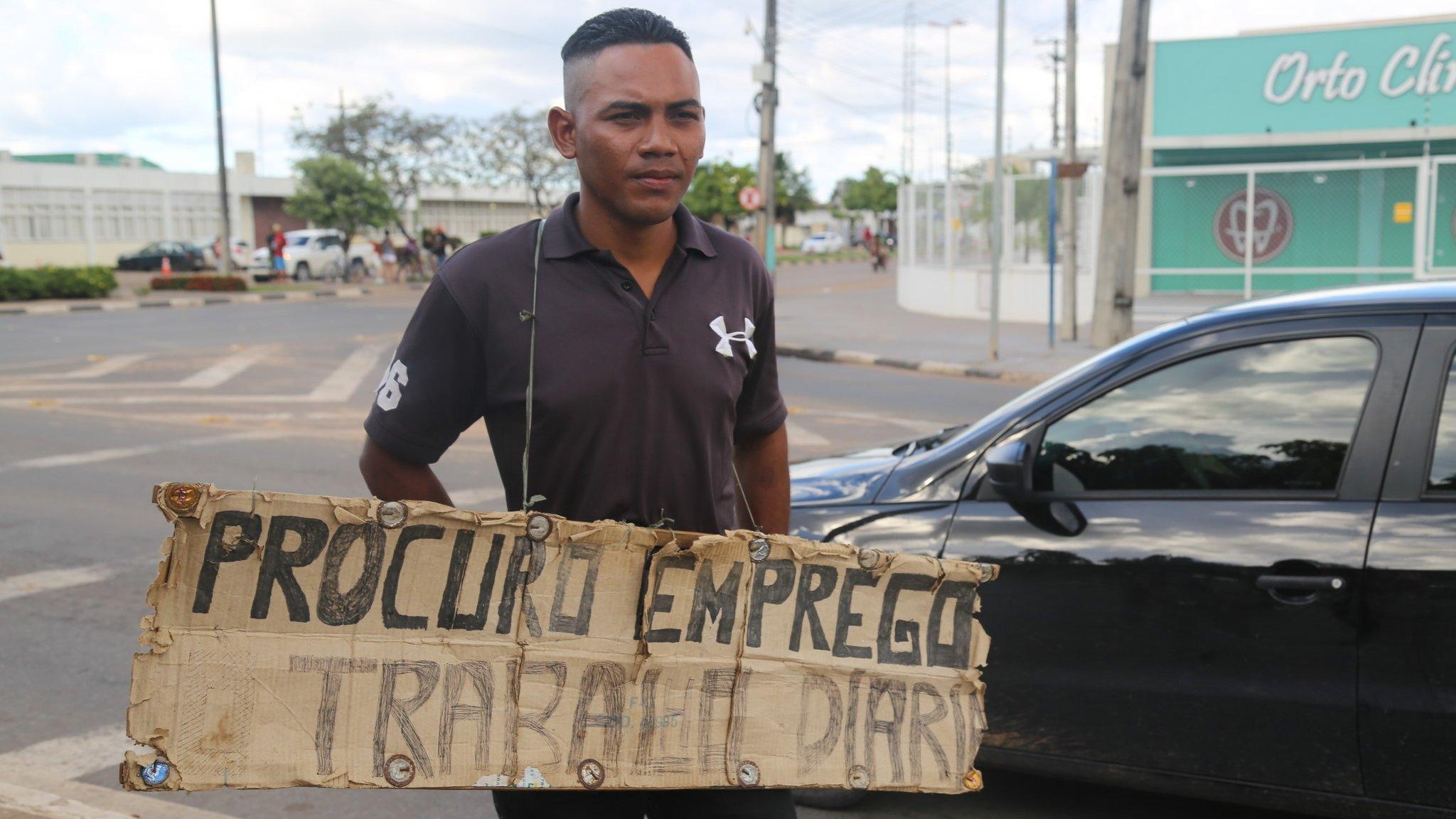
- Published29 July 2016
